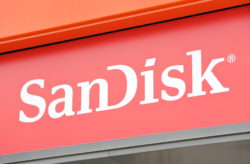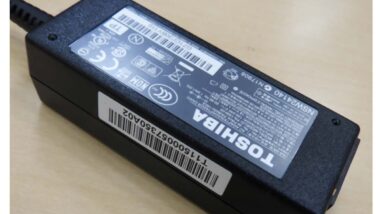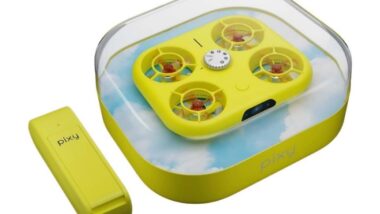Top Class Actions’s website and social media posts use affiliate links. If you make a purchase using such links, we may receive a commission, but it will not result in any additional charges to you. Please review our Affiliate Link Disclosure for more information.

According to U.S. District Judge Beth Labson Freeman, SanDisk’s use of the term gigabyte to describe the amount of storage in some memory cards and flash drives was not deceptive.
The judge went on to say that the consumers did not provide any evidence that SanDisks’ advertisement was deceptive, other than noting that SanDisk uses the term gigabyte. In the judge’s words, the customers “do not allege any words or images other than GB that might be misleading.”
The judge elaborated as to why just the word gigabyte itself was not misleading. She agreed with SanDisk’s argument that gigabyte is an ambiguous term, so if consumers made an assumption about the amount of storage present in a one gigabyte memory card that was different from the one used by SanDisk, that did not necessarily mean that SanDisk was being misleading.
Consumers in the SanDisk class action lawsuit had argued that SanDisk uses the term “gigabyte” to refer to an amount of storage equal to 1 billion gigabytes. The plaintiffs claimed that in contrast, most computer systems use the term gigabyte to be equal to 1,073,741,824 bytes.
According to the SanDisk storage class action lawsuit, many customers may be accustomed to the larger size, and will make purchasing assumptions based on that measurement.
The SanDisk memory card class action lawsuit argued that SanDisk had not “meaningfully, adequately, or conspicuously” misled consumers into thinking that the devices had more memory than they really do.
The consumers argued that the deception financially injured them because they had to pay more for a product for which they might have paid less if they had known its true storage capacity.
According to Judge Freeman, the front of the package listed the storage capacity in terms of gigabyte, for example, as “64 GB,” with an asterisk next to it. Allegedly, the asterisk is on the back of the package as well, noting that “1 GB = 1,000,000,000.”
The judge determined that this labeling was sufficient to inform consumers about the true storage capacity of the devices. Judge Freeman said that “the disclosure is in fine print, but legible,” and notes that the consumers do not dispute the presence of the disclosure.
In your experience, is it easy to determine the storage size when shopping for a memory card? Tell us about it in the comments below.
Dinan is represented by James Rosemergy, Paul Maddock and Francis J. Flynn Jr. of Carey Danis & Lowe.
The SanDisk Memory Card Storage Size Class Action Lawsuit is John Dinan v. SanDisk LLC, Case No. 5:18-cv-05420-BLF, in the U.S. District Court for the Northern District of California, San Jose Division.
ATTORNEY ADVERTISING
Top Class Actions is a Proud Member of the American Bar Association
LEGAL INFORMATION IS NOT LEGAL ADVICE
Top Class Actions Legal Statement
©2008 – 2024 Top Class Actions® LLC
Various Trademarks held by their respective owners
This website is not intended for viewing or usage by European Union citizens.















14 thoughts onSanDisk Memory Card Class Action Dismissed
Please add me.
Add me please
It has nothing to do with formatting. You actually lose a lot more capacity to formatting, depending on what formatting system you chose like NTFS, exFAT, RAID and so on.
Originally it was believed manufacturers started it with HDDs to make them seem to have more capacity than they really had. The truth might be more complicated as HDDs back then would commonly have unusable sectors even when new. The manufacurers would have to block those sectors from being used, and so many new drives would not have the claimed capacity if the binary Gigabyte was used. By claiming it was a “decimal” Gigabyte instead, it gave them a bit of memory for bad sectors and so allowed a greater number of new drives to have full capacity and so be able to be sold.
Word purists might bristle at decimal Gigabyte, since bytes are binary, not decimal. However, outside of computers, “Giga” does mean 10^9 instead of 2^30. This leads to constant confusion and complaints as you buy an “8TB” hard drive for example, only find that windows says it has very significantly less than this. This is because all memory manufacturers now use decimal, while Microsoft and most software use the binary defintion. Not forgetting that once the drive has been formatted, you lose another significant chunk of memory.
If you’re going to sue Sandisk for “misleading” storage capacities, you should sue other storage device makers as well. All SD cards and hard drives don’t come with the full capacity due to formatting.
If you’re going to sue Sandisk for “misleading” storage capacities, you should sue other storage device makers as well. All SD cards and hard drives don’t come with the full capacity due to formatting.
If you’re going to sue Sandisk for “misleading” storage capacities, you should sue all storage device makers as well. All SD cards and hard drives don’t come with the full capacity due to formatting.
This judge is a moron. GB is NOT ambiguous. Just because SanDisk uses it ambiguously doesn’t change the fact.
Might let put a price on the package and then claim ambiguity and asterisk it out and ring it up for a different value?
Add me to the lawsuite.
Got my Roundup check $106. Thanks TCA
Please add me
It was DISMISSED> :( Nothing to add to.